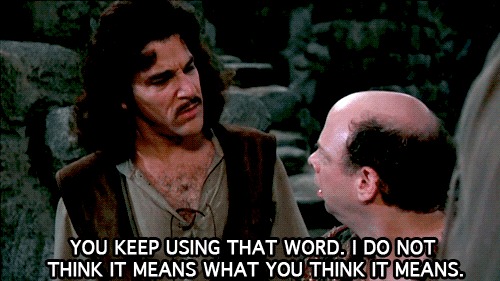I recall sitting in the weekly meeting at my first marketing internship. Surrounded by subject-matter experts in the space known as ad tech, I tried to hide my computer screen as I subtly googled almost every other word spoken. It was as if I were in a room of people conversing in a different language. And in a way, I was. I felt embarrassed for not knowing the terms – pressured to unscramble strung-together letters and find their meaning.
That day, as I frantically attempted to keep up, I began to question the complexity of the industry I worked in. Now, as someone who does PR for a range of ad tech companies, I still think about it. If our goal is to create a collaborative environment whereby brands, agencies, publishers, and data partners can ultimately reach consumers with positive ad experiences, why have we made it so complicated?
Ad tech is known for its long list of acronyms, jargon, and synonymous words. They’re ubiquitous in ad tech PR as well. This not only makes it hard for new talent to get up to speed, but it turns ordinary things like reporter conversations and strategic discussions into cryptic and complicated exchanges.
For ad tech PR professionals who understand these terms, it’s easy to get wrapped up in their extravagance. But keep in mind that the brains coining these terms are ordinary people – most likely sitting at their desks or kitchen tables in athleisure outfits and baseball hats (myself included). So, let’s strip away the facade and break some of them down:
FLoC
Or Google Topics. The ad tech people who get it, get it. If you don’t, here’s the scoop: in 2019, Google announced FLoC – the Federated Learning of Cohorts, a system standard to solve for the demise of third-party cookies, those bits of code that carry data about our web browsing activities and interests. To safeguard consumer privacy, Google Chrome proposed the use of algorithms to create “cohorts” – groups of consumers with similar interests. This would allow for targeting based on interests, rather than a user’s personal identifying data. Although it seems as though FLoC is flying with a broken wing, it will surely remain in the conversation, with the recent announcement of Google Topics just last week.
PII
PII stands for personally identifiable information and can mean name, email, phone number, or more. It’s valuable currency for advertisers when it comes to targeting. However, due to privacy regulations, PII has become increasingly hard to obtain unless a consumer gives permission.
GDPR
This stands for the General Data Protection Regulation, rolled out in 2018 to monitor and govern the way in which consumer data is collected, processed, and stored. Over the years, GDPR has incentivized additional regulations, like the California Consumer Privacy Act (CCPA) and the newly emerged Surveillance Advertising Act. As the industry navigates continued consumer demand for transparency and privacy, these regulations are what makes data like PII so much trickier to secure and leverage (to provide impactful advertising experiences).
ATV
Is Connected TV (CTV) ATV? Yes. Is ATV CTV? No. Get the picture? Basically, Advanced TV (ATV) is one of those umbrella terms that tend to cause confusion. A helpful analogy is that a square is a rectangle, but a rectangle isn’t a square. ATV encapsulates all things non-traditional TV: CTV, OTT, VOD/SVOD, and addressable TV – don’t get me started on those. Okay fine, here:
-
CTV: a TV streaming content via the internet
-
OTT: the streaming service that consumers use to watch CTV
-
VOD/SVOD: This one is pretty easy. Users can watch things they missed on demand; they can also watch on demand through a subscription service
-
Addressable TV: any TV that connects to the internet to provide VOD
The above is just a sample of the many flashcards we in ad tech must hold in our minds. While these terms have a powerful and useful meaning in our industry, our job as PR professionals is to break complex ideas into digestible and compelling stories – and in ad tech PR, specifically, our role is to explain how technology can benefit the advertising experience. To do so, we must be able to communicate, market, sell, and teach it in simple terms. If we can’t do that, do any of us really know what we’re talking about?



